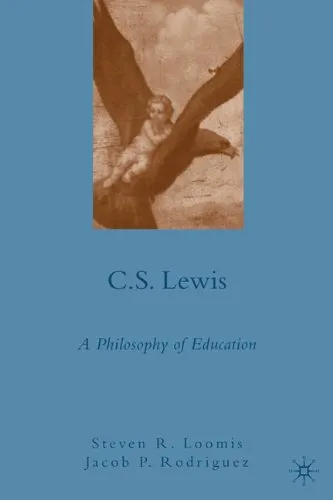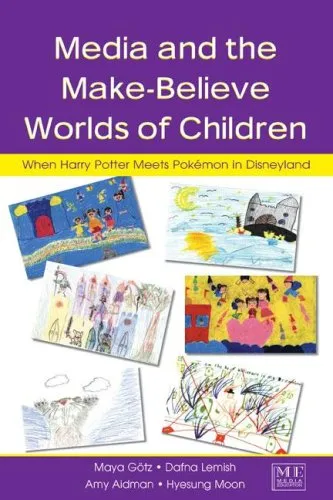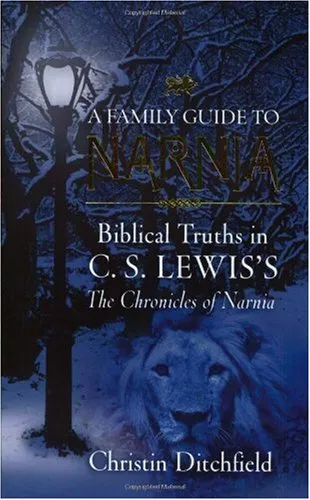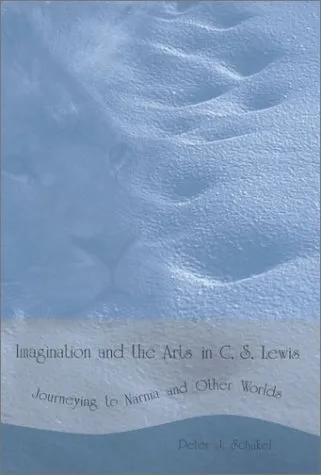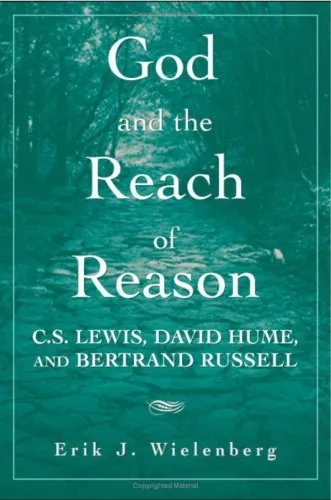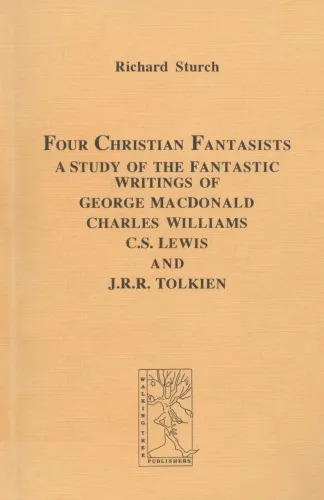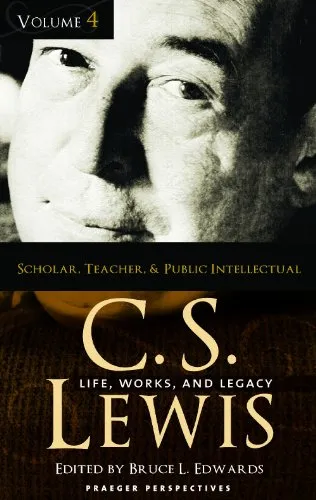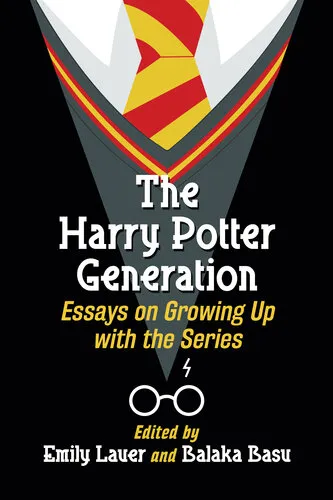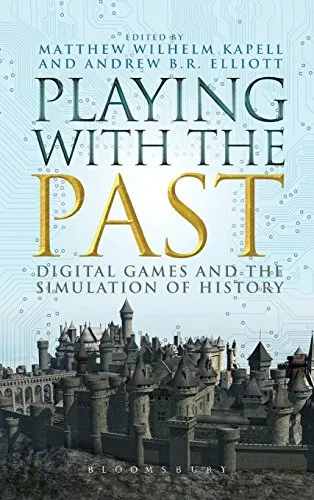C.S. Lewis: a philosophy of education
4.5
بر اساس نظر کاربران

شما میتونید سوالاتتون در باره کتاب رو از هوش مصنوعیش بعد از ورود بپرسید
هر دانلود یا پرسش از هوش مصنوعی 2 امتیاز لازم دارد، برای بدست آوردن امتیاز رایگان، به صفحه ی راهنمای امتیازات سر بزنید و یک سری کار ارزشمند انجام بدینRelated Refrences:
مقدمهای بر کتاب "C.S. Lewis: a philosophy of education"
کتاب "C.S. Lewis: a philosophy of education" به بررسی نگرشها و نظریات آموزشی C.S. Lewis میپردازد. این کتاب تحلیل دقیقی از ایدههای آموزشی نویسنده مشهور و طرز فکر او در زمینه تعلیم و تربیت ارائه میکند. Lewis که بهعنوان یک نویسنده، فیلسوف و مدافع مسیحیت شناخته میشود، از روشهای نوآورانه برای تعلیم استفاده کرده است و دیدگاههای او هنوز هم در دنیای آموزشی مورد توجه قرار میگیرد.
خلاصهای از کتاب
کتاب "C.S. Lewis: a philosophy of education" به تعمق در ایدههای Lewis در مورد یادگیری و آموزش میپردازد. برداشتهای Lewis از آموزش بهویژه در نقد او بر آموزش معاصر و تأکیدش بر ارزشهای کلاسیک و تربیت اخلاقی نمایان است. این کتاب همچنین به چگونگی ارتقای تفکر فلسفی در دانشآموزان و تأثیرات آن بر جامعه میپردازد. دیدگاه Lewis درباره اهمیت تربیت اخلاقی و روشهای مناسب برای پرورش فعالیتهای ذهنی، جزء اساسی این بررسی است.
یافتههای کلیدی
نقد سیستمهای آموزشی مدرن بهخاطر کمبود در پرورش ارزشها و اخلاق.
تأکید بر اهمیت ادبیات، فلسفه و هنر در برنامهریزی درسی.
معرفی تفکر انتقادی بهعنوان وسیلهای برای رشد انسانی و فرهنگی.
دیدگاه Lewis که معتقد است آموزش باید به جای تأکید بر شغل و کارآفرینی، بر توسعه انسانیت تمرکز کند.
جملات مشهور از کتاب
"هدف از آموزش ایجاد انسانهاییست که بتوانند با آگاهی و اخلاقیات صحیح در دنیای پیچیده زندگی کنند."
"آموزش نباید فقط به دنبال انباشتن اطلاعات باشد، بلکه باید شخصیت و روح انسان را نیز پرورش دهد."
چرا این کتاب مهم است
کتاب "C.S. Lewis: a philosophy of education" نه تنها دیدگاهی بدیع از سیستمهای آموزشی ارائه میدهد، بلکه به چالشهای معاصر در عرصه تعلیم و تربیت نیز پاسخ میدهد. مطالعه این کتاب برای معلمان، محققان و تمام افرادی که علاقهمند به تعلیم و تربیت هستند، بسیار ضروری است. این کتاب به ما کمک میکند تا بفهمیم چگونه میتوان از ارزشهای اخلاقی و فرهنگی برای ایجاد جامعهای بهتر و پایدارت بهره برد. در دنیایی که معمولاً آموزش برای کارآموزی و شغلی هدف قرار میگیرد، این اثر رویکردی جامعتر و انسانیتر ارائه میدهد.
C.S. Lewis, a towering figure in literature and theology, is respected not just for his imaginative writing and apologetics, but also for his profound insights into education. In "C.S. Lewis: A Philosophy of Education," we aim to delve into Lewis's educational philosophy, highlighting its relevance and application in today's world. This endeavor provides a thorough analysis of how Lewis's thoughts can influence modern educational practices, often challenging contemporary ideals and methodologies.
Detailed Summary of the Book
The book is structured to explore different facets of C.S. Lewis's educational beliefs, drawing from his diverse writings, including his fiction, essays, and personal correspondences. It begins by outlining the foundational principles of Lewis's philosophy which are deeply rooted in classical education and tradition. The text then progressively delves into his critique of modern educational practices, emphasizing a return to rationality, objective truth, and moral values as the bedrock of meaningful education.
Furthermore, the book discusses Lewis's idea of the 'Great Books' and the importance of knowledge that transcends immediate practicality. Lewis believed that education should not merely be about vocational training but should aim at the cultivation of the individual's intellect and character. The authors also explore how Lewis's personal educational journey shaped his views, giving readers an intimate look at his development from a young student to a mature thinker.
Key Takeaways
- Lewis advocates for an education that nurtures both intellect and character, opposing the purely utilitarian views of education.
- He argues for the importance of teaching objective standards of truth and beauty, as opposed to relativism.
- Lewis emphasizes the role of imagination and creativity, seeing them as essential components for a fulfilled and meaningful life.
- An education system should focus on developing virtues such as courage, integrity, and humility in students.
Famous Quotes from the Book
“Education without values, as useful as it is, seems rather to make man a more clever devil.”
“The task of the modern educator is not to cut down jungles but to irrigate deserts.”
Why This Book Matters
In today's ever-changing educational landscape, where technology often takes precedence over fundamental principles, "C.S. Lewis: A Philosophy of Education" serves as a vital reminder of the perennial wisdom that Lewis championed. The book is a crucial read for educators, policymakers, and anyone interested in the philosophy of education. It challenges readers to rethink contemporary educational practices and encourages a shift towards a more holistic approach. This work not only helps in understanding C.S. Lewis as a philosopher of education but also serves as a blueprint for developing an education system that fosters genuine knowledge, virtue, and imagination.
By exploring Lewis's thoughts, the book addresses the deeper questions concerning the purpose of education and its role in society, ultimately advocating for an approach that balances traditional values with the demands of the modern world. It is an essential guide to understanding how education can be enriched by returning to its roots in classical wisdom while remaining relevant in today's context.
دانلود رایگان مستقیم
شما میتونید سوالاتتون در باره کتاب رو از هوش مصنوعیش بعد از ورود بپرسید
دسترسی به کتابها از طریق پلتفرمهای قانونی و کتابخانههای عمومی نه تنها از حقوق نویسندگان و ناشران حمایت میکند، بلکه به پایداری فرهنگ کتابخوانی نیز کمک میرساند. پیش از دانلود، لحظهای به بررسی این گزینهها فکر کنید.
این کتاب رو در پلتفرم های دیگه ببینید
WorldCat به شما کمک میکنه تا کتاب ها رو در کتابخانه های سراسر دنیا پیدا کنید
امتیازها، نظرات تخصصی و صحبت ها درباره کتاب را در Goodreads ببینید
کتابهای کمیاب یا دست دوم را در AbeBooks پیدا کنید و بخرید
1402
بازدید4.5
امتیاز0
نظر98%
رضایتنظرات:
4.5
بر اساس 0 نظر کاربران
Questions & Answers
Ask questions about this book or help others by answering
No questions yet. Be the first to ask!
